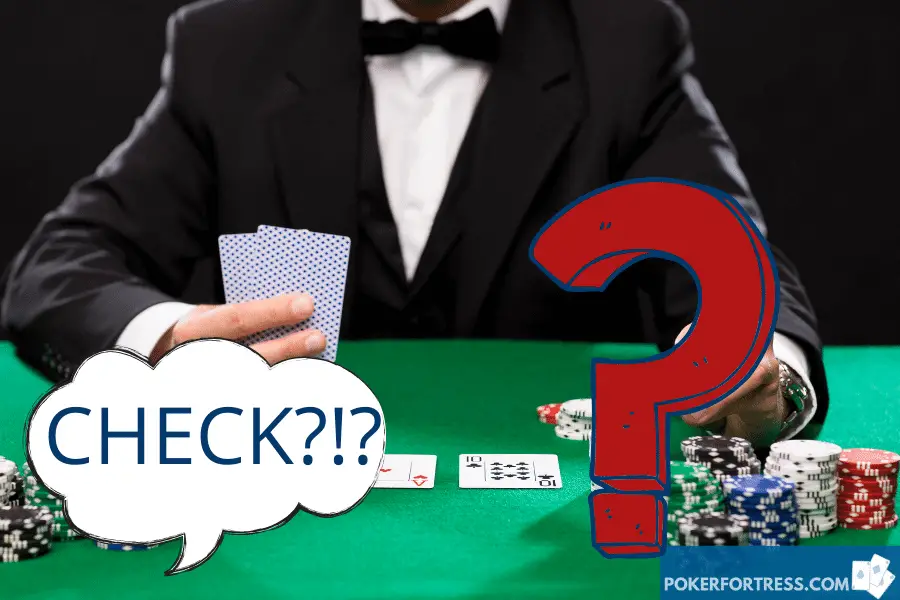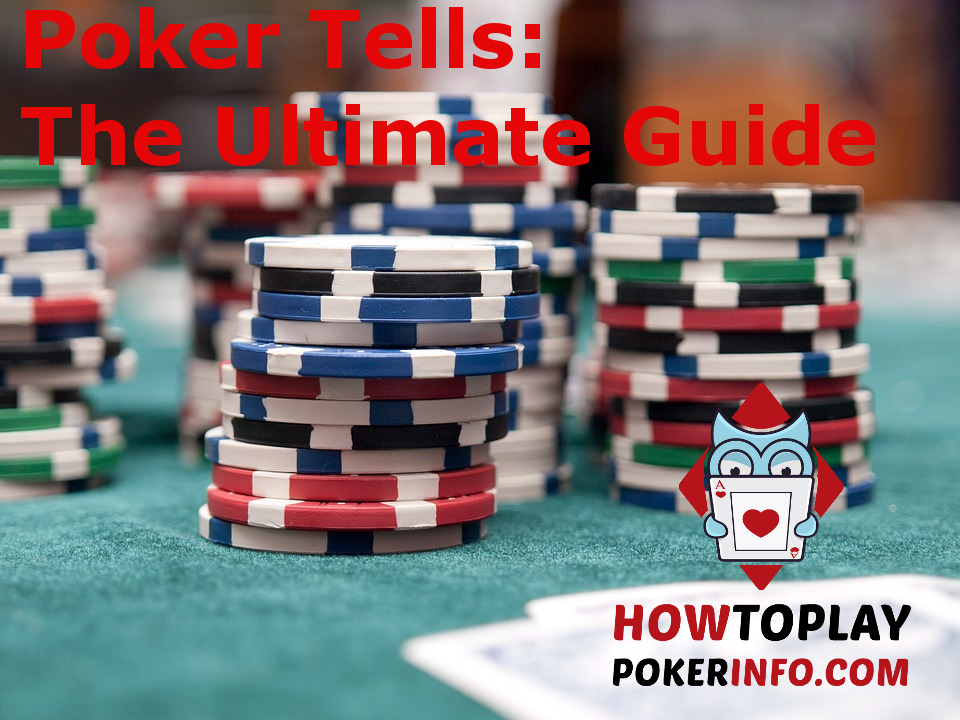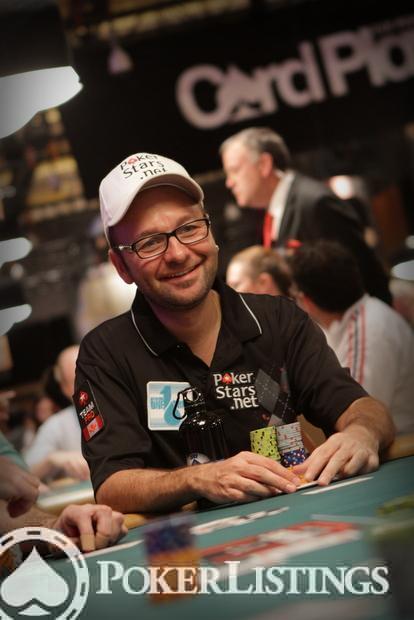
In most games of poker, including 5 card draw, calling is usually a mistake. Poker rewards aggression, so most of the time, you should bet or raise. If you're not feeling good enough about your hand to bet or raise, you should check or fold. Calling is a weak move. In most home poker games of 5 card draw, you'll see a lot of players limping. Check - place no bet, only an available option when no one has bet before you. Call - stay in the hand by matching someone's bet. Raise - Bet more than what the previous person bet, and now they.
I don't play a lot of pots out of position. When I do play out of position, the most common scenario is that I've open-raised preflop and someone has called behind me.
In this scenario, many students of the game automatically fire a continuation bet on the flop. Download poker galaxy versi iphone 8. This is too aggressive. You should be checking many flops when you're out of position whether you were the preflop raiser or not.
Why is that? Well, the short answer is that once a competent player calls your preflop raise in position, you're no longer necessarily the favorite in the hand. A competent player is going to call your preflop raises with a range of hands roughly equal in strength to the ones you would open-raise with.
Say you're four off the button and you make it $20 to go in a $2-$5 game. What hands are you doing this with? If you're playing an aggressive but not particularly loose game, you'll be opening with hands like fours, Q-T suited, A-6 suited, and A-J offsuit. A competent player generally won't be calling your raise with hands too much weaker than these. Sure, you'll have aces and kings in your range while your opponent might reraise rather than call with these premium hands. But generally your raising range doesn't have a huge card strength advantage over the caller's range.

And, you're out of position. Out of position, with no card strength advantage, against a competent opponent. It's not a particularly profitable situation. In deference to this reality, you should be checking many flops.
But just because you're checking doesn't mean you're just giving up. You can check-call with good hands. And you can check-raise. In this article I'll talk about check-raise bluffing.
Since most players don't check enough in this scenario, they also don't check-raise bluff enough. This is a powerful play when used with an appropriate frequency.
Here's an example. It's $2-$5 and your main opponent in this hand has $400. You open from three off the button with K-Q offsuit. The button calls, and the blinds fold. The button plays fairly tightly preflop, and he seems to have a tendency to bet when checked to. He doesn't seem to stack off light, and otherwise he seems an unremarkable player for the limit.
The flop comes A-9-7 rainbow. Many players auto-bet the ace when they have raised preflop. But again, it is theoretically an error to bet any ace-high flop with 100 percent of your holdings. Since the caller's hand range is roughly as strong as your range, you're not particularly more likely to hold a strong hand on this flop than is your opponent.
Before I continue with the discussion, I want to emphasize that the strength of range versus range is key in this decision. If you're playing against a loose fish who calls nearly any two cards preflop, as the preflop raiser this flop is indeed an auto-bet. Your raising range will be much stronger on average than your opponent's range.
Check Raise Poker Meaning Urban Dictionary


When you check, there's a good chance your opponent bets. This bet could represent an ace, a nine, a seven, an unimproved pocket pair, a straight draw, two pair, a set, or air. In other words, if you don't know much about your opponent except that he often bets when checked to, after checking this flop I wouldn't necessarily ascribe much strength to a flop bet.
You can check-raise bluff profitably against this betting range. What hands fold to a check-raise? Many players would fold all of their non-ace pairs. They'd fold their air obviously. They'd fold some straight draws, particularly gutshots. Many players would also fold a weak ace, something like A-5 suited, to a check-raise like this. These hands likely comprise more than half of your opponent's betting range, and therefore the check-raise bluff is likely profitable.
One pitfall with this play can be that you don't represent much. What can you have to make this check-raise? Depending on how deep the stacks are, you're representing a set or two pair or perhaps A-K. Here's where the stack sizes help you a bit. Since your opponent is playing only 80 big blinds, you could be check-raising for value as light as perhaps A-Q. If the stacks were deeper, check-raising a hand as weak as A-Q looking to get it in would be way too loose. With shallow stacks, though, you can represent a wider range of value hands. With these stacks most players won't necessarily be putting you on a bluff in this situation.

If you're making this play as a bluff, then you should also make it sometimes for value. If you happened to open with 9-7 suited and then caught an A-9-7 rainbow flop with 80 bb stacks, check-raising the flop is a reasonable play. Your opponent will bet fairly frequently. Since your opponent will often get it in with A-K through A-J, you can be happy about getting stacks in. And the sorts of hands your opponent might check the flop back with, for example, eights, 9-8, and the like, don't have many outs and will sometimes pay off a turn or river bet.
Check Raise Poker Meaning Slang
So what's the point of all this? When you raise preflop and get called by a competent player who has position, you should check many flops. Most players bet too often in this situation and consequently get caught putting too much money into the pot with too little hand. You don't have to check every flop, but if you checked half the time, it wouldn't be too much checking.
You shouldn't check only with hands you plan to give up. You should check planning to check-call with good hands. You should check planning to check-raise good hands. And you should also check-raise bluff. Bluffing with K-Q on an A-9-7 rainbow board has a few things going for it. You'll get a lot of immediate folds since it's hard to have a hand worth felting on this flop. When you get called, sometimes your opponent will have a hand like J-T, T-8, or 8-6, so you might conceivably win a showdown.
Check Raise Poker Meaning List
Finally, when you play this way, you put a lot of pressure on players holding hands like A-6. These players have three options against you: fold to your bluffs, pay off your A-Q hands, or give lots of free cards with top pair.
The key to playing tough no-limit is to understand how strong your hand range is compared to your opponent's range. When your range is weak and/or you're out of position, check more often and play to punish your opponent's overaggression. ♠

In most games of poker, including 5 card draw, calling is usually a mistake. Poker rewards aggression, so most of the time, you should bet or raise. If you're not feeling good enough about your hand to bet or raise, you should check or fold. Calling is a weak move. In most home poker games of 5 card draw, you'll see a lot of players limping. Check - place no bet, only an available option when no one has bet before you. Call - stay in the hand by matching someone's bet. Raise - Bet more than what the previous person bet, and now they.
I don't play a lot of pots out of position. When I do play out of position, the most common scenario is that I've open-raised preflop and someone has called behind me.
In this scenario, many students of the game automatically fire a continuation bet on the flop. Download poker galaxy versi iphone 8. This is too aggressive. You should be checking many flops when you're out of position whether you were the preflop raiser or not.
Why is that? Well, the short answer is that once a competent player calls your preflop raise in position, you're no longer necessarily the favorite in the hand. A competent player is going to call your preflop raises with a range of hands roughly equal in strength to the ones you would open-raise with.
Say you're four off the button and you make it $20 to go in a $2-$5 game. What hands are you doing this with? If you're playing an aggressive but not particularly loose game, you'll be opening with hands like fours, Q-T suited, A-6 suited, and A-J offsuit. A competent player generally won't be calling your raise with hands too much weaker than these. Sure, you'll have aces and kings in your range while your opponent might reraise rather than call with these premium hands. But generally your raising range doesn't have a huge card strength advantage over the caller's range.
And, you're out of position. Out of position, with no card strength advantage, against a competent opponent. It's not a particularly profitable situation. In deference to this reality, you should be checking many flops.
But just because you're checking doesn't mean you're just giving up. You can check-call with good hands. And you can check-raise. In this article I'll talk about check-raise bluffing.
Since most players don't check enough in this scenario, they also don't check-raise bluff enough. This is a powerful play when used with an appropriate frequency.
Here's an example. It's $2-$5 and your main opponent in this hand has $400. You open from three off the button with K-Q offsuit. The button calls, and the blinds fold. The button plays fairly tightly preflop, and he seems to have a tendency to bet when checked to. He doesn't seem to stack off light, and otherwise he seems an unremarkable player for the limit.
The flop comes A-9-7 rainbow. Many players auto-bet the ace when they have raised preflop. But again, it is theoretically an error to bet any ace-high flop with 100 percent of your holdings. Since the caller's hand range is roughly as strong as your range, you're not particularly more likely to hold a strong hand on this flop than is your opponent.
Before I continue with the discussion, I want to emphasize that the strength of range versus range is key in this decision. If you're playing against a loose fish who calls nearly any two cards preflop, as the preflop raiser this flop is indeed an auto-bet. Your raising range will be much stronger on average than your opponent's range.
Check Raise Poker Meaning Urban Dictionary
When you check, there's a good chance your opponent bets. This bet could represent an ace, a nine, a seven, an unimproved pocket pair, a straight draw, two pair, a set, or air. In other words, if you don't know much about your opponent except that he often bets when checked to, after checking this flop I wouldn't necessarily ascribe much strength to a flop bet.
You can check-raise bluff profitably against this betting range. What hands fold to a check-raise? Many players would fold all of their non-ace pairs. They'd fold their air obviously. They'd fold some straight draws, particularly gutshots. Many players would also fold a weak ace, something like A-5 suited, to a check-raise like this. These hands likely comprise more than half of your opponent's betting range, and therefore the check-raise bluff is likely profitable.
One pitfall with this play can be that you don't represent much. What can you have to make this check-raise? Depending on how deep the stacks are, you're representing a set or two pair or perhaps A-K. Here's where the stack sizes help you a bit. Since your opponent is playing only 80 big blinds, you could be check-raising for value as light as perhaps A-Q. If the stacks were deeper, check-raising a hand as weak as A-Q looking to get it in would be way too loose. With shallow stacks, though, you can represent a wider range of value hands. With these stacks most players won't necessarily be putting you on a bluff in this situation.
If you're making this play as a bluff, then you should also make it sometimes for value. If you happened to open with 9-7 suited and then caught an A-9-7 rainbow flop with 80 bb stacks, check-raising the flop is a reasonable play. Your opponent will bet fairly frequently. Since your opponent will often get it in with A-K through A-J, you can be happy about getting stacks in. And the sorts of hands your opponent might check the flop back with, for example, eights, 9-8, and the like, don't have many outs and will sometimes pay off a turn or river bet.
Check Raise Poker Meaning Slang
So what's the point of all this? When you raise preflop and get called by a competent player who has position, you should check many flops. Most players bet too often in this situation and consequently get caught putting too much money into the pot with too little hand. You don't have to check every flop, but if you checked half the time, it wouldn't be too much checking.
You shouldn't check only with hands you plan to give up. You should check planning to check-call with good hands. You should check planning to check-raise good hands. And you should also check-raise bluff. Bluffing with K-Q on an A-9-7 rainbow board has a few things going for it. You'll get a lot of immediate folds since it's hard to have a hand worth felting on this flop. When you get called, sometimes your opponent will have a hand like J-T, T-8, or 8-6, so you might conceivably win a showdown.
Check Raise Poker Meaning List
Finally, when you play this way, you put a lot of pressure on players holding hands like A-6. These players have three options against you: fold to your bluffs, pay off your A-Q hands, or give lots of free cards with top pair.
The key to playing tough no-limit is to understand how strong your hand range is compared to your opponent's range. When your range is weak and/or you're out of position, check more often and play to punish your opponent's overaggression. ♠
Ed's brand new book, Reading Hands At No-Limit Hold'em, is available immediately for purchase at notedpokerauthority.com. Find him on Facebook at facebook.com/edmillerauthor and on Twitter @EdMillerPoker.